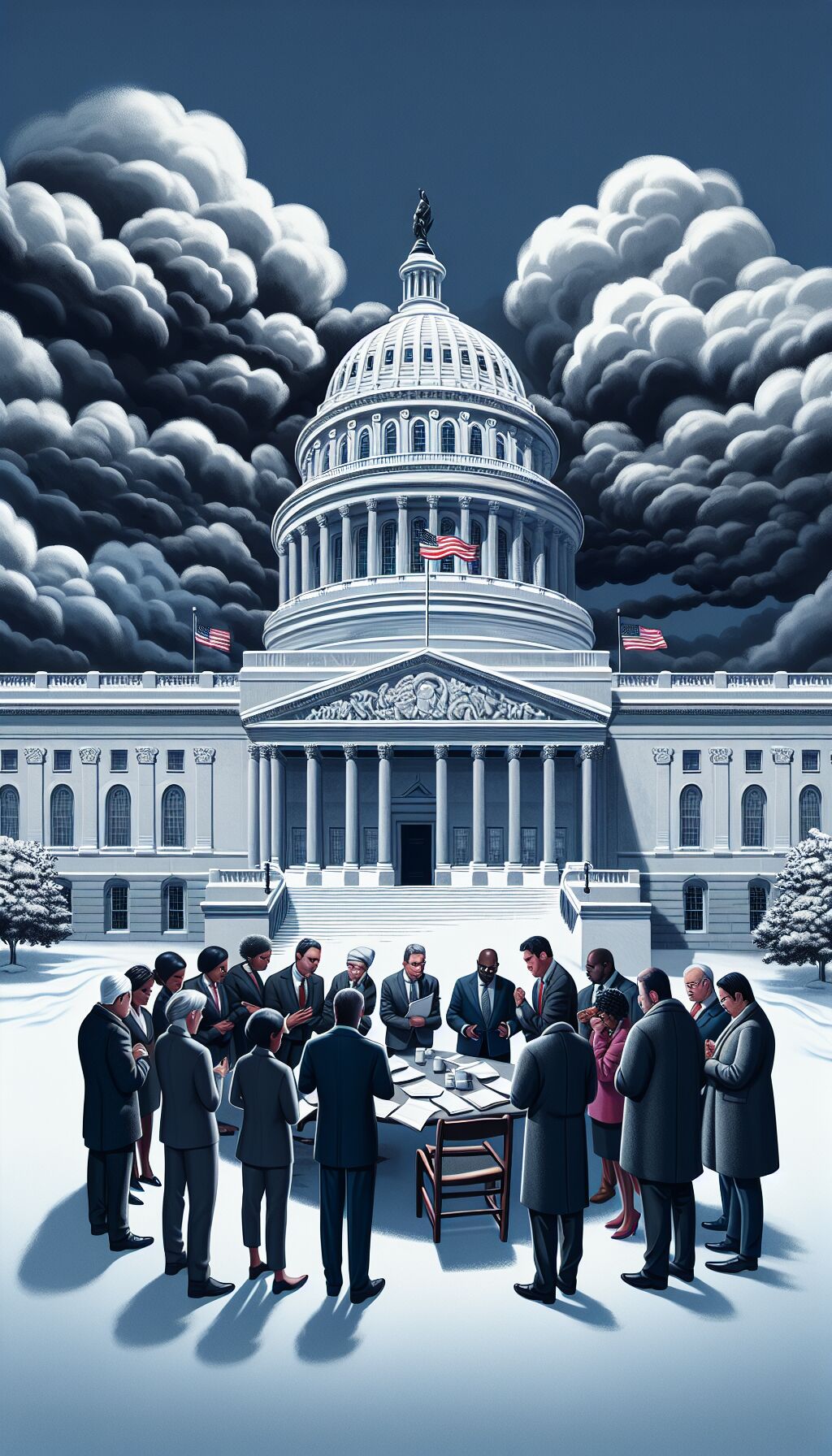House Republicans Struggle to Finalize Budget Plan as Deadline Approaches
As the age-old saying goes, talk is cheap. For House Republicans, this adage has been glaringly evident as they navigate the complicated waters of drafting a budget plan aimed at slashing taxes and cutting government spending. As February unfolds, these lawmakers find themselves embroiled in discussions without reaching a consensus, particularly when it comes to what President Trump refers to as a “big beautiful bill.”
Intense Discussions in D.C.
The setting has been monumental. In early January, House Republicans gathered for not one, but two day-long strategy sessions at Fort McNair in Washington, D.C. Key figures like House Budget Committee Chair Jodey Arrington (R-Texas) and Ways and Means Committee Chair Jason Smith (R-Mo.) took the lead in outlining potential spending cuts and budget reconciliation strategies. These meetings were intended to project an image of unity, but as of mid-February, no concrete agreement had been reached.
The Quest for ‘Budget Reconciliation’
For the uninitiated, the term ‘budget reconciliation’ should be at the forefront of discussions on the proposed budget plan. This legislative maneuver allows the Senate to sidestep the usual 60-vote requirement to overcome a filibuster, as long as the bill pertains to taxes and spending cuts—areas where the House has identified potential revenue-generating and cost-saving measures.
However, even as the Republicans convened numerous meetings to discuss the fiscal blueprint, including a lengthy three-day session at Trump’s golf club in Doral, Florida, they returned to Washington with nothing but claims of camaraderie among members—no finalized agreement in sight.
The White House Meeting
As efforts to unite House members continued, GOP congressional leaders made their way to the White House for a pivotal meeting with President Trump. The discussion lasted nearly five hours, during which Republicans expressed optimism about narrowing the gaps in the proposed budget. “He’s going to have to make some decisions,” noted a senior House Republican, emphasizing Trump’s critical role in the negotiation process.
While House Speaker Mike Johnson (R-La.) met with Israeli Prime Minister Benjamin Netanyahu, he was interrupted by ongoing budget debates and distractions. “We made serious progress,” Senator Steve Scalise (R-La.) proclaimed upon return to Capitol Hill, hinting that details might be finalized and presented to the Budget Committee.
Frustration Among Lawmakers
Despite the sense of urgency depicted by GOP leaders, discontent brewed among some House members. Representative Tim Burchett (R-Tenn.) expressed his frustration, claiming, “They’re not going to force me into something.”
As the week progressed, hopes of securing a budget became further complicated. Johnson reduced expectations, stating, “It may not be today,” as he admitted they had more discussions to undertake. The optimistic tone of the previous gatherings seemed to dim, further complicating the timeline.
The Relentless Pressures of Governance
The landscape of Republican leadership reflects a sense of urgency driven by the math of their majority. With only 218 votes in the 433-member House, losing even a couple of votes could render negotiations moot. Any misstep could lead to significant setbacks with various factions vying for their priorities to be included in the budget.
Amid a looming snowstorm in Washington, D.C., the stakes only continued to rise. Johnson attempted to maintain an air of optimism during a weekly press conference brushing aside concerns about the timeline: “We’ve got a few more people we’ve got to talk with and a couple more boxes to check.”
Breaking Down the Budget Blueprint
In a turn of events, House Budget Chair Arrington delivered a budget blueprint that proposed an astounding trillion in cuts to mandatory spending and outlined a .5 trillion tax reduction package. Furthermore, it suggests raising the debt ceiling by trillion – a move loaded with implications for fiscal policies and debt management.
Looking Ahead
The question now hangs in the air: can House Republicans move beyond endless discussions and push a bill through committee to the floor for a vote? Although progress had been made after a week of negotiations, uncertainty looms with so many voices and opinions within their ranks.
As the snow fell on Washington D.C., so too did the weight of the unanswered questions concerning the fate of a comprehensive Republican budget. After weeks of negotiations colored by speculation and differing agendas, lawmakers positioned themselves to finally unveil a plan that could shape government spending and tax policies for years to come.
The Final Word
Ultimately, weeks of discussions left House Republicans standing at a crucial crossroads. They now face not only the challenge of crafting a budget but also the need to assure that it represents the interests of their entire party. As they get closer to an actual proposal, the balance they strike could prove pivotal in setting the direction of fiscal policy—and their political future—under a tumultuous administration.
